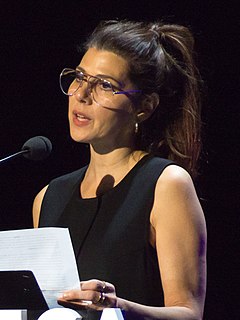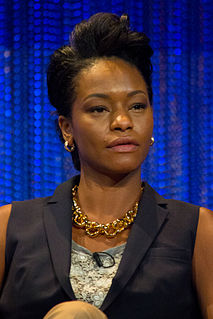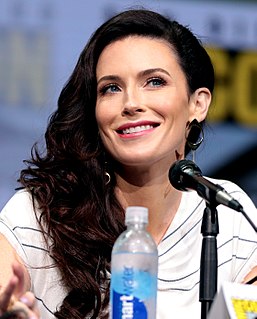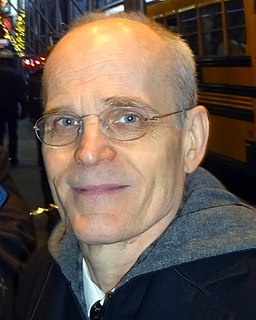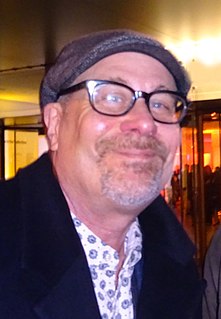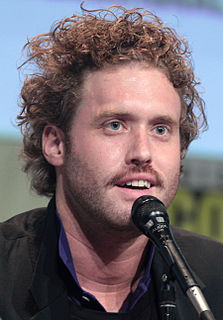A Quote by Marisa Tomei
With acting, it was really more of a general kind of experience of really just loving being in the theater.
Related Quotes
Being on film is forever. Television, as well, just lives on and on and on, which is really exciting. But then with theater, it's like an experience. You have to be there that one special night that was like that to see that one performance that was really remarkable. It's more intimate as well. So I like them both.
I love acting in the theater,but I'm fascinated with acting on film. If it's a film or a play or whatever, if the writing is good and you really feel passionate about it, you just can't lose. You'll grow from it. Whether it's a success or not is neither here nor there; you're going to grow as an artist from this experience.
Chicago theater vs. New York theater. There's just nothing to say about it really. If you've seen Chicago theater, you know that the work is true to what is there on the page. It's not trying to present itself with some sort of flashy, concept-based thing. It's about the work, and it's about the acting you're about to watch. So acting-based theater feels like it was born there to me.
Really good acting is not about dialogue. It's really just about small moments that really make the whole entire scene and the intention completely different than even maybe what the characters are saying. Two characters could be saying, "I hate you, and I don't want to be with you anymore!" But yet somehow, their toes are just inching more, you know, closer to each other. So a really big thing about acting is really just with your body.
Football is the kind of game where you have to really segregate kids from the general population and kind of colonize their minds. It's more intense and demands more than other sports. And this is why the folks who are involved (as players, coaches, boosters, fans) are so much more devoted to it. It's really a cult, when you think about it.
I acted in high school and studied at the British American Drama Academy in Oxford for one summer. I minored in theater, and I was always acting growing up and stuff, but really, I was just more interested in the comedy of it all. So for me, it's always comedy, and then acting is just one medium of comedy.
People call me a theater actor, but I'm just an actor. But I tell my friends all the time - especially a lot that do theater and haven't done a lot of TV/film - that you have so much more control over your work onstage. When you go onstage, you can really see the difference between people who can really do it, and people who are just kind of pretending to do it. There is no editor, there's nothing that's going to stop the actor from showing what they can do unless it's not a well-written role.
